The Power of Play-Based Learning: Unleashing the Potential of Children in the Early Years
At Edx Education we believe ‘Play’ is a fundamental aspect of childhood, and its benefits extend far beyond entertainment. In recent years, educators and researchers have recognized the immense value of play-based learning for children in the early years. This approach harnesses the natural inclination of children to explore, experiment, and imagine, creating a rich and engaging environment that facilitates holistic development. In this blog we delve into the remarkable benefits of play-based learning and why it holds the key to unlocking a child’s potential during their formative years.
Enhancing Cognitive Development:
Play-based learning acts as a catalyst for cognitive growth in young children. Through play, children engage in problem-solving, critical thinking, and decision-making, which stimulate their intellectual abilities. Whether building with blocks, solving puzzles, or engaging in imaginative play, children develop essential cognitive skills, including logical reasoning, spatial awareness, and creativity. Play-based learning promotes active exploration, allowing children to make connections, understand cause and effect, and develop a deeper understanding of the world around them.
Fostering Social and Emotional Skills:
Play-based learning provides a fertile ground for the development of social and emotional skills. Children learn to cooperate, negotiate, and collaborate with their peers during play. They engage in pretend play, taking on various roles and developing empathy as they understand different perspectives. Play-based learning also helps children regulate their emotions, express themselves, and develop self-control. By engaging in social interactions within a play-based environment, children learn valuable skills that lay the foundation for positive relationships and effective communication.
Promoting Physical Development:
Physical play is an integral part of play-based learning, supporting children’s physical development and overall well-being. Whether running, climbing, 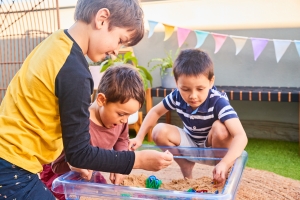 jumping, or engaging in sensory play, children develop their gross and fine motor skills, coordination, and balance. Active play not only contributes to their physical health but also aids in the development of body awareness, spatial orientation, and motor planning. Play-based learning encourages children to explore their physical abilities, leading to improved strength, agility, and overall physical confidence.
jumping, or engaging in sensory play, children develop their gross and fine motor skills, coordination, and balance. Active play not only contributes to their physical health but also aids in the development of body awareness, spatial orientation, and motor planning. Play-based learning encourages children to explore their physical abilities, leading to improved strength, agility, and overall physical confidence.
Nurturing Creativity and Imagination:
Imagination is the cornerstone of play-based learning. By engaging in open-ended play scenarios, children unleash their creativity, allowing their imaginations to soar. Whether building elaborate structures with blocks, creating stories during pretend play, or expressing themselves through art, children develop their imaginative and artistic abilities. Play-based learning encourages children to think outside the box, explore new ideas, and develop innovative problem-solving skills. It lays the groundwork for a lifelong love of learning and nurtures a sense of curiosity and wonder.
Cultivating Language and Communication Skills:
Play-based learning serves as a rich language and communication environment for children. Engaging in social interactions during play helps children develop their vocabulary, listening skills, and expressive language abilities. Whether engaging in conversations with peers, negotiating roles during pretend play, or engaging in storytelling, children practice and refine their communication skills. Play-based learning also encourages active listening, turn-taking, and the ability to express ideas and thoughts effectively.
Play-based learning is a powerful educational approach that recognizes the intrinsic value of play in a child’s development. By embracing play as a vehicle for learning, children in the early years can experience holistic growth across cognitive, social, emotional, physical, and linguistic domains. Educators, parents, and policymakers must recognize the significance of play-based learning and provide ample opportunities for children to engage in purposeful play. By doing so, we can unleash the full potential of our children, laying a strong foundation for lifelong learning and success.
Art Edx Education we love to chat about play and learning to shop our full range of educational products for children of all age groups, abilities and developmental stages here:
UK https://www.shopedx.co.uk
USA www.amazon.com/edxeducation
Edx Education – Heather Welch
To find your local Edx Education retailer head over to Where to buy – Edx Education.

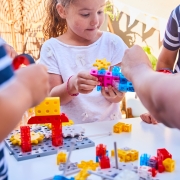
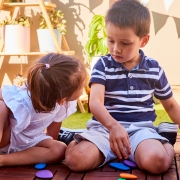
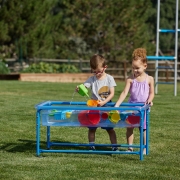
 Edx Education
Edx Education 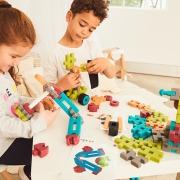 Edx Education
Edx Education 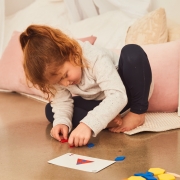
 Edx Education
Edx Education 
